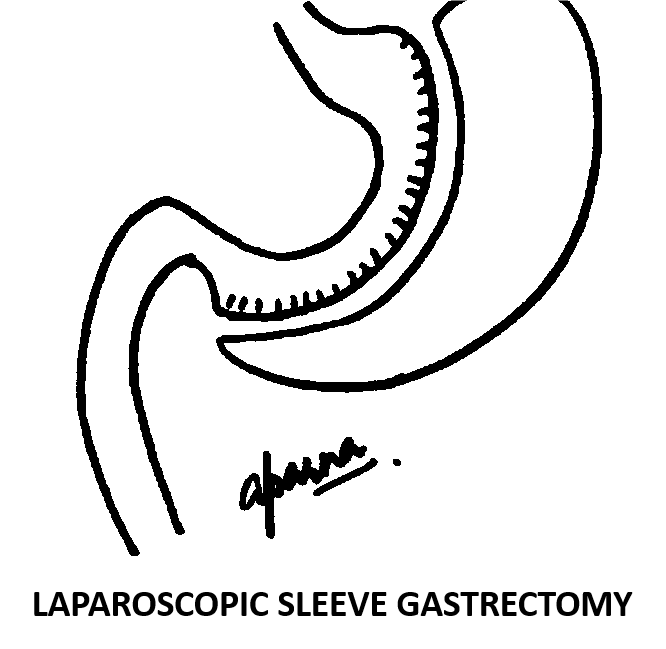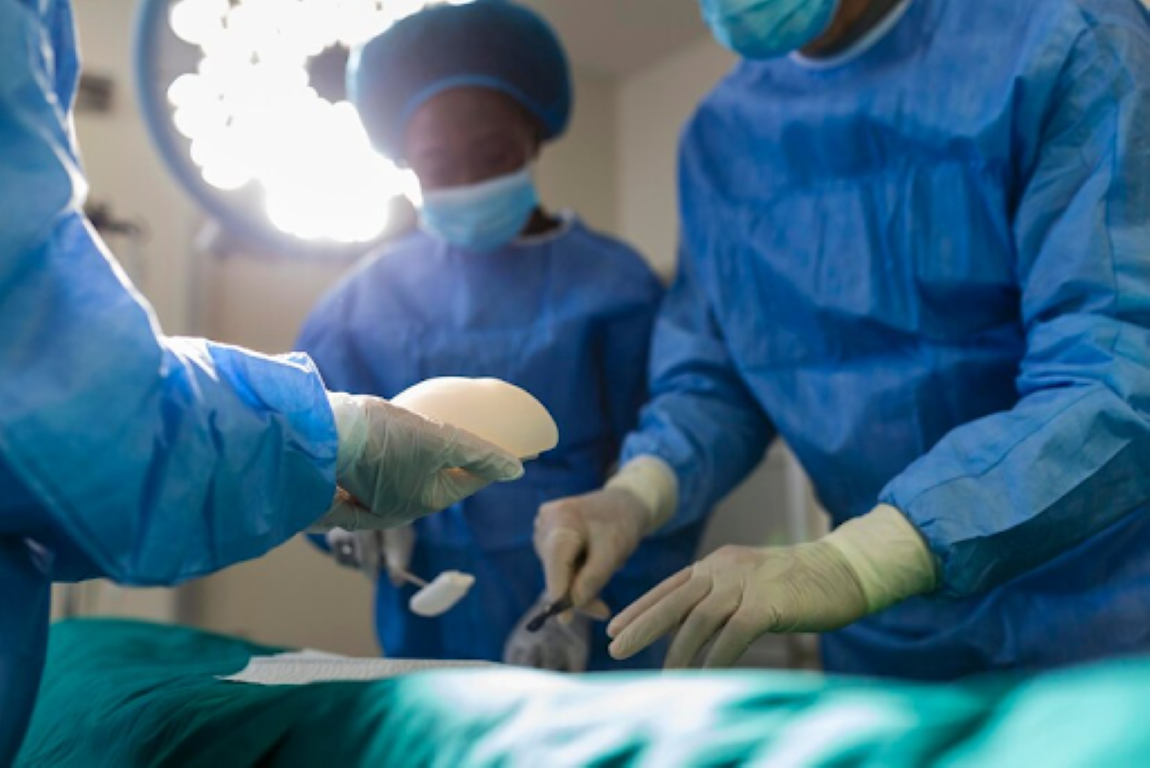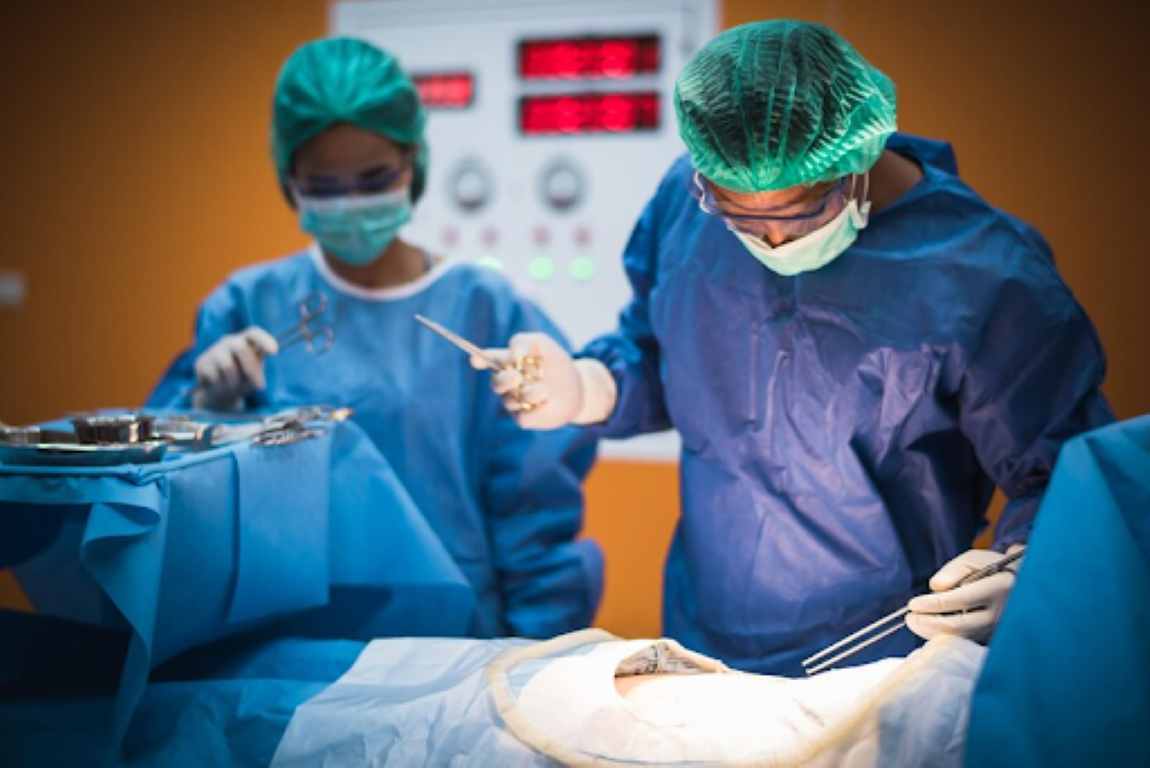Laparoscopic sleeve gastrectomy or gastric sleeve surgery is a type of weight-loss/bariatric surgery. As the name suggests it can be performed through key-hole method (laparoscopy). In this technique 4 to 5 tiny cuts of half to one cm are made on the abdomen and the whole surgery is performed through these. Laparoscopic sleeve gastrectomy can also be performed in the scar-less manner through a single cut through the belly button. In this procedure, the stomach is divided longitudinally using surgical staplers and two-thirds of the stomach is removed. This results into a banana shaped stomach with a capacity of 60 to 100 cc.
| MYTHS | FACTS |
| Laparoscopic sleeve gastrectomy is a cosmetic procedure | Laparoscopic sleeve gastrectomy is not a cosmetic procedure. Not only does it lead to massive weight loss but it also leads to improvement in obesity related diseases such as type 2 diabetes, high blood pressure, heart disease, sleep apnoea, high cholesterol, gout, joint pains, PCOD, infertility etc. |
| One cannot eat anything after laparoscopic sleeve gastrectomy | All bariatric procedures lead to restriction of food intake. In the first 3 to 6 months, restriction is higher. As time goes by, food intake increases gradually and patients are able to eat better quantities. It is also important to pay attention to quality of food being consumed after surgery. |
| Patients can regain weight in a few years | Surgery leads to massive weight loss in the first 2 years. Most patients lose up to 65 to70% of their excess weight during this time. However, like in the management of any other chronic disease, lifestyle modification is an important part of management of obesity. Patients who embrace lifestyle modification get better weight loss results in the long term. Not all patients regain weight. |
| Laparoscopic sleeve gastrectomy has a high complication rate | Laparoscopic sleeve gastrectomy is safe. Its complication rate is much lesser than many other surgeries done that are done for cancer or heart. The risk is the same as that in knee replacement surgery or gall bladder surgery. Mortality rate after bariatric surgery is less than 0.5% |
Dr. Aparna Govil Bhasker is an Advanced Laparoscopic and Bariatric Surgeon in mumbai.
Affiliations: Global Hospital, Parel; Apollo Hospitals, CBD Belapur, Tradeo and Chembur; Currae Hospital, Thane; Suchak hospital, Malad and Namaha Hospital, Kandivali
Mobile: +919819566618
Email: draparnagovil@gmail.com
Website: www.bestbariatricsurgeon.org





